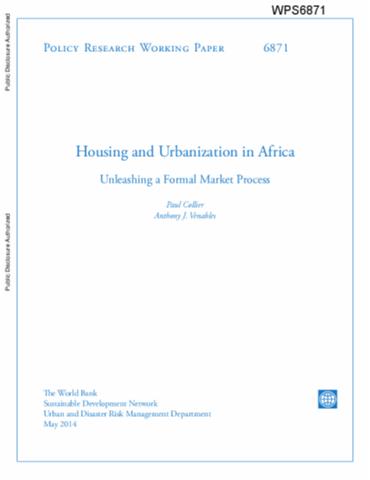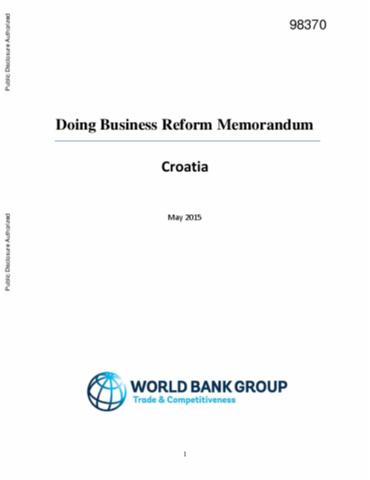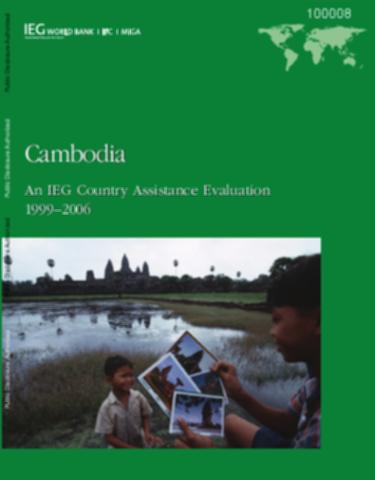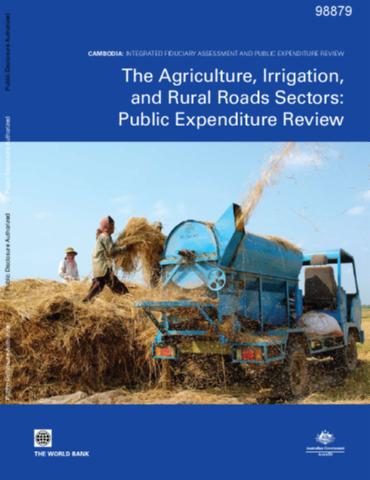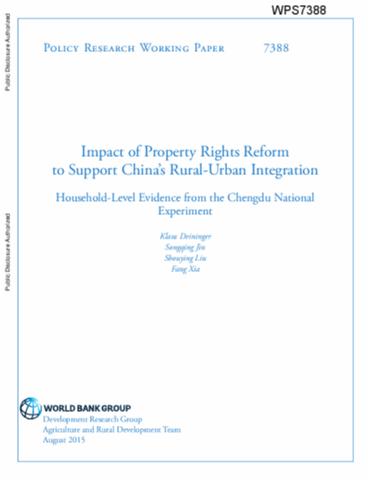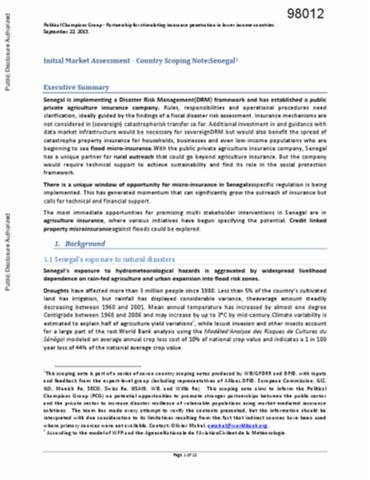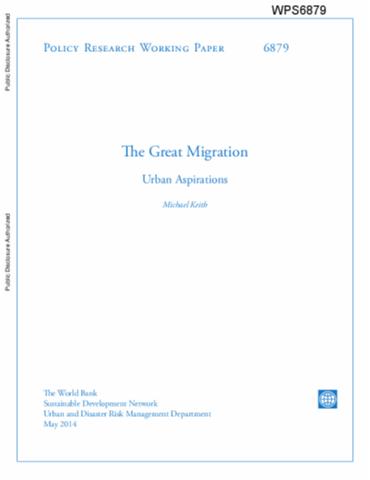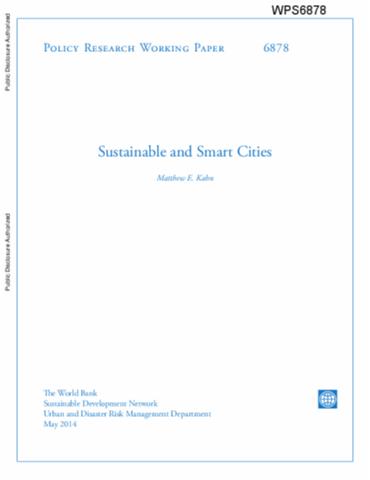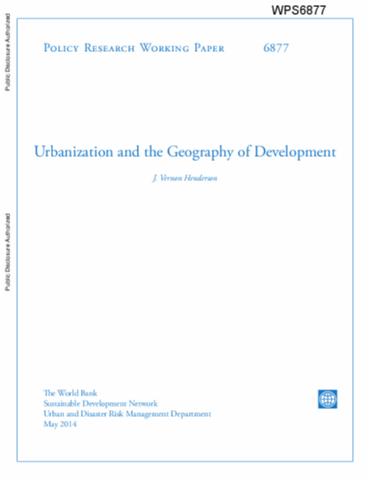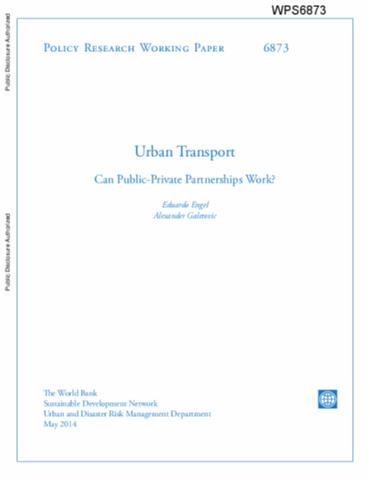
Topics and Regions
Details
Location
Contributions
Displaying 591 - 600 of 630Housing and Urbanization in Africa : Unleashing a Formal Market Process
The accumulation of decent housing matters both because of the difference it makes to living standards and because of its centrality to economic development. The consequences for living standards are far-reaching. In addition to directly conferring utility, decent housing improves health and enables children to do homework. It frees up women's time and enables them to participate in the labor market. More subtly, a home and its environs affect identity and self-respect.
Doing Business Reform Memorandum
Croatia’s business environment has been identified as a priority area for reform by the Croatian Government. Under the government working group for business climate and private investments, the agency for investment and competitiveness has been designated to lead the dialogue with the private sector and coordinate the consultations with stakeholders, including international organizations on the design of a new wave of business environment reforms.
Cambodia
Cambodia emerged in the early 1990s from 30 years of conflict, the brutal Khmer Rouge era, and a decade of Vietnamese occupation, with one of the world’s lowest per-capita incomes, and with social indicators far behind those of neighboring Southeast Asian countries. Physical infrastructure had been largely destroyed. United Nations intervention led to a peace agreement in 1991, a new constitution, elections, and formation of a coalition government, although a reduced level of conflict and political instability continued until the late 1990s.
Cambodia
This report focuses on areas with highest potential efficiency gains to increase the value for money from investments in core public goods and services such as extension, irrigation and rural roads. This is a first attempt to carry out such an analysis in Cambodia, and even in the Greater Mekong sub-region. Based on extensive data gathering and surveys, this chapter analyzes the efficiency and effectiveness of agricultural sector expenditures in Cambodia and assesses various options for increasing the impact of government expenditures on agricultural growth.
Impact of Property Rights Reform to Support China’s Rural-Urban Integration
As part of a national experiment in 2008, Chengdu prefecture implemented ambitious property rights reforms, including complete registration of all land together with measures to ease transferability and eliminate migration restrictions. A triple difference approach using the Statistics Bureau’s regular household panel suggests that the reforms increased consumption and income, especially for less wealthy and less educated households, with estimated benefits well above the cost of implementation.
Initial Market Assessment
Senegal is implementing a Disaster Risk Management (DRM) framework and has established a public private agriculture insurance company. Rules, responsibilities and operational procedures need clarification, ideally guided by the findings of a fiscal disaster risk assessment. Insurance mechanisms are not considered in (sovereign) catastrophe risk transfer so far.
The Great Migration : Urban Aspirations
The great 21st-century migration into cities will present both a great challenge for humanity and a significant opportunity for global economic growth. This paper describes the diverse patterns that define this metropolitan migration. It then lays out a framework for understanding the costs and benefits of new arrivals through migration's externalities and the challenges and policy tradeoffs that confront city stakeholders.
Sustainable and Smart Cities
This paper explores the challenges and opportunities that government officials face in designing coherent 'rules of the game' for achieving urban sustainability during times of growth. Sustainability is judged by three criteria. The first involves elements of day-to-day quality of life, such as having clean air and water and green space. The provision of these public goods has direct effects on the urban public's health and productivity. The second focuses on the city's greenhouse gas emissions.
Urbanization and the Geography of Development
This paper focuses on three interrelated questions on urbanization and the geography of development. First, although we herald cities with their industrial bases as "engines of growth," does industrialization in fact drive urbanization? While such relationships appear in the data, the process is not straightforward. Among developing countries, changes in income or industrialization correlate only weakly with changes in urbanization. This suggests that policy and institutional factors may also influence the urbanization process.
Urban Transport : Can Public-Private Partnerships Work?
Cities exist, grow, and prosper because they take advantage of scale economies and specialization wrought by agglomeration. But output growth inevitably stresses transport infrastructure because production requires space and mobility. To prevent congestion from crowding out agglomeration benefits and to expand the supply of urban land, cities must invest in transport infrastructure. Yet balancing the growing demand for infrastructure with its supply is often difficult. In particular, many cities lack the funding to maintain and expand streets and urban highways.

